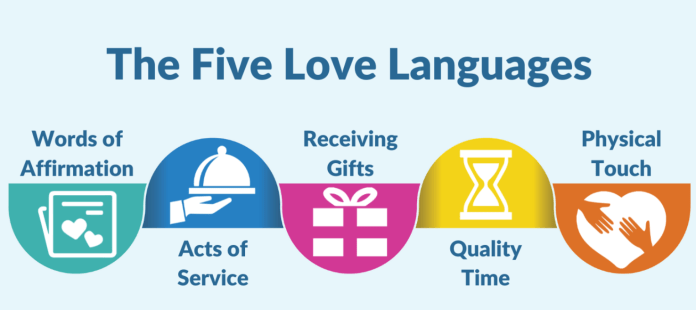There are many rules we learn in life, one of which is: Treat others how you want to be treated. This crucial rule plays a significant role in many of our social relationships from the time we learn it to adulthood. As it shapes the way we treat others, the five love languages theory offers a different approach to relationships. Rather than treating others how you want to be treated, you treat others how THEY want to be treated.
Gary Chapman, author of The Five Love Languages explains that treating others with their own love language is an effective way of strengthening the relationships you have. This is especially the case as everyone expresses and receives love differently.
Whichever the case: you’re moving in together, finally having the “money talk” or thinking about getting back together, the five love languages can seriously change the way your relationship works. In theory, the five love languages can help you understand more about how to be the best self and partner you can be. The concept is simple enough: “This is what’s important to me, and I need you to validate that for me to feel like this relationship is progressing and going well.”
It’s also important to note that as helpful love languages are, it’s even more important to be able to communicate it with your partner. Not only are you making your partner feel loved, but yourself as well. Once you find out your love language, you can help your partner understand it.
Words of Affirmation

Those who have words of affirmation as their love language needs verbal validation from your partner. One example of this style of love language is having your partners validating what you are feeling and how the relationship is going. Perhaps saying “I love you” or “I adore you” can be several ways to show your affections
Acts of Service

People who have acts of service as their love language cherish meaningful actions rather than words. It would be meaningful for them if you help them with little tasks like helping them clean the dishes, taking the trash out or sweeping the room.

For those of you who prefer receiving gifts as their love language, they love to receive tokens of affections. It does not necessarily mean they like material things, but the gift is seen as a symbol or a physical manifestation of what the relationship means to that person. Flowers, chocolate, or something in their wishlist can be gifted for the person to feel special.
Quality Time

Quality time can also be a sign of affection for your partner. This love language cares deeply about having your undivided attention. Sharing hobbies, watching a movie together or having deep conversations about the world is something they will remember. It does not mean that you have to spend a lot of time with them, but rather that your time together is considered to be very precious.
Physical Touch

On the other hand, physical touch can be considered to be another form of affections. Whether it is snuggles or hugs, people whose love language is physical touch thrive on physical interaction.
Have you practiced this with your loved on? Share your experience in the comments section below!





